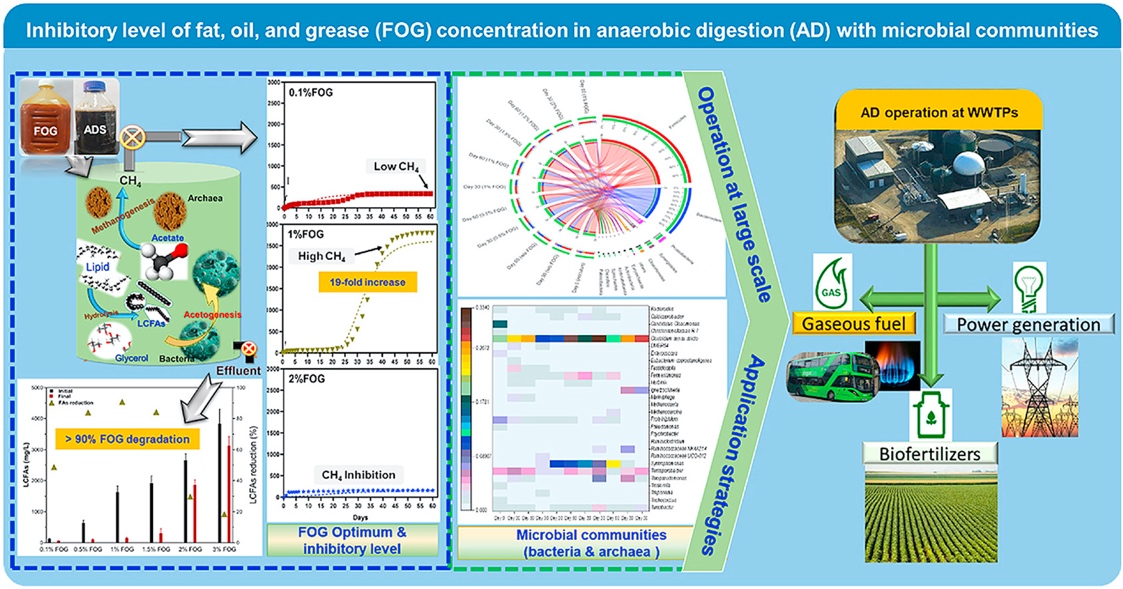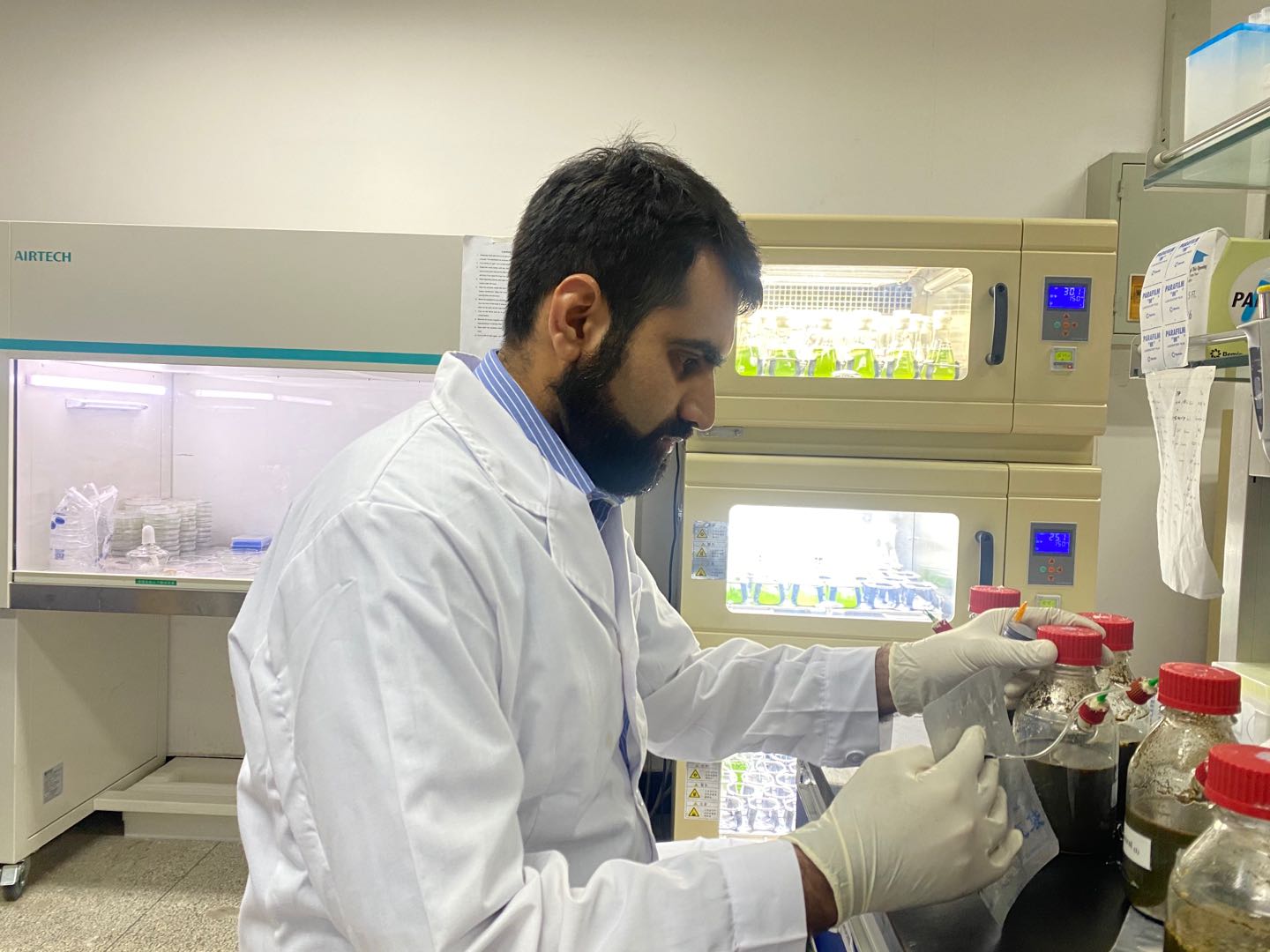recently, muhammad usman, a pakistani doctoral student of lanzhou university published a research paper titled as “determination of the inhibitory concentration level of fat, oil, and grease (fog) towards bacterial and archaeal communities in anaerobic digestion” a top international journal “renewable & sustainable energy reviews” (5-year if=12.35) (online address: https://www.sciencedirect.com/science/article/ abs/pii/s1364032120303233? dgcid=coauthor). it is currently the highest impact research paper in the field of fog anaerobic digestion.

figure 1: graphic abstract of paper
muhammad usman is the first author of this paper, el-sayed salama young professor of school of public health and professor xiangkai li of school of life sciences are the co-corresponding authors of this research work. the moe, key laboratory of cell activities and stress adaptations, in the school of life sciences has the first affiliation. food waste is a potential feedstock for bioenergy, but due to its high content of fat, oil and grease (fog), it inhibits the microbes, resulting in low conversion efficiency. in this study, the research group explored the effects of adding different concentrations of fog to anaerobic digestion on biomethane production and microbial communities. the experimental results show that after the fog addition ratio is 1-1.5% v/v, the system produces 12-19 times higher biomethane than the unadded anaerobic digestion system. the high-throughput sequencing results revealed that the symbiotic relationship between syntrophomonas (acetogens) and methanosaeta (acetoclastic methanogens) is considered to be a key microbial factor for improving biomethane production. the results of this paper also provide an important theoretical basis for the conversion of oily biomass such as food waste to bioenergy.

figure 2: dr. muhammad usman
muhammad usman is doctoral student from the first batch of “belt and road” government scholarship funded by lanzhou university in 2017. it is a joint project by the school of international cultural exchange and the school of life sciences to pursue a doctorate in microbiology. the instructors are el-sayed salama young professor and professor li xiangkai. the government scholarship is based on the application and approval of the china-pakistan biomass energy national laboratory jointly established by our school and the pakistani agricultural council (parc). this annually provides 20 full doctoral scholarships for pakistan students for a period of five years. at present, more than 60 pakistani international students have obtained the government scholarship to come to our school to study for a doctorate, and have published more than 10 high-level sci papers. this project has also been widely praised by the pakistan agricultural council and will provide a large number of international biomass energy professionals for the construction of the "belt and road".
